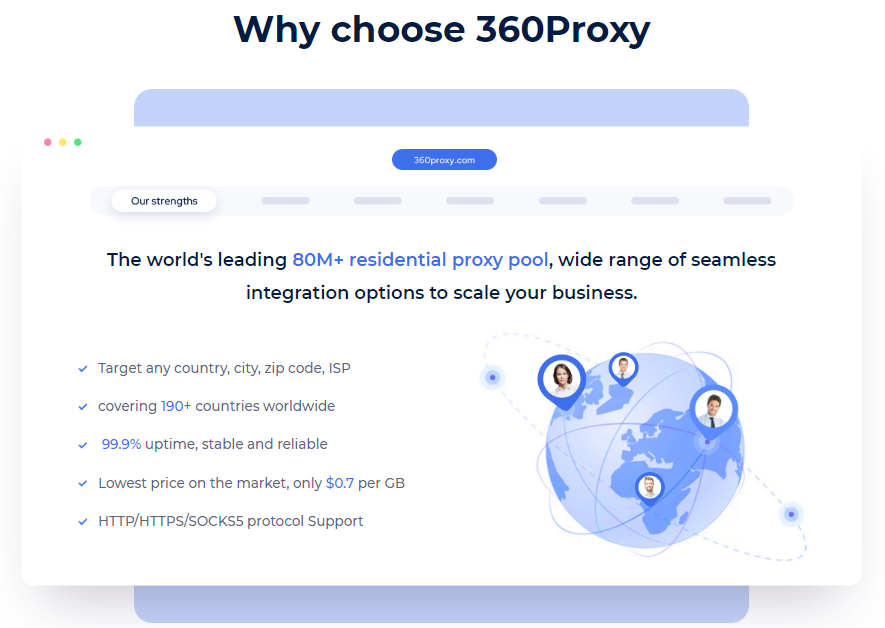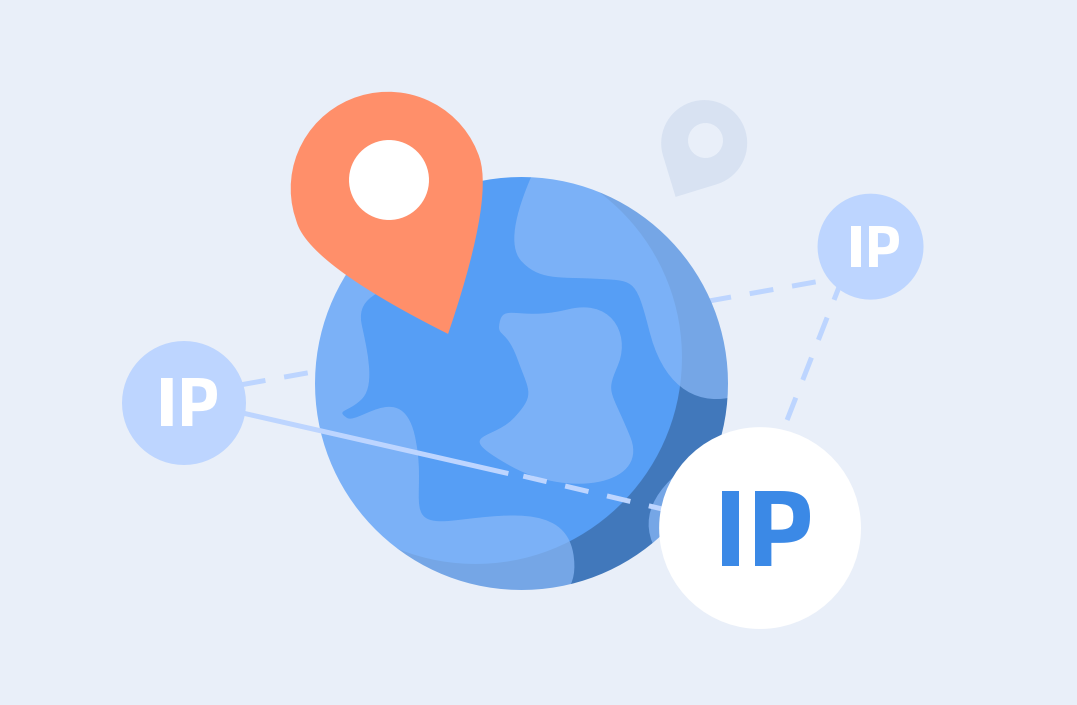This article will answer you what a residential proxy is. By reading the blog article, you will learn some relevant knowledge about residential proxies. Moreover, you will learn about the relevant introduction of 360 proxies, so let us enter today’s blog article with questions.
Residential proxies are IP addresses from home devices that regular users connect to a Wi-Fi network. This means that each residential IP is linked to a physical location. Billions of devices are connected to the internet, and their IPs can pinpoint the location of any particular device.
Residential proxies are ideal for a variety of applications, especially where authenticity and privacy are critical. They perform well in tasks such as data scraping because they are less prone to blocking.
It’s worth noting that residential proxies run on a shared IP pool. Typically, users can choose to rotate IPs on every request or stick with a certain IP for a period of 1, 10, or 30 minutes.
Residential Proxy Benefits: Diverse IP Selection – Choose from a wide range of subnets for enhanced undetectability. Highest degree of anonymity – rest assured that proxy users will not be identified. Global Locations – Take advantage of rich international geo-targeting options. High success rate - perform tasks without interruption while avoiding detection and throttling. Increased Security – Use Rotate IP to hide your real IP, adding an extra layer of online security.
Disadvantages of Residential Proxy: Medium Speed – Relatively slow connection speed compared to other proxy types. Unstable connection stability – Residential internet connections are unpredictable, resulting in occasional fluctuations in connectivity. Shared IP Assignment Residential IPs are shared among multiple users, which may result in the IP being blacklisted due to the activity of other users.
Residential proxies are ideal for tasks that require high IP diversity and location-specific targeting. Here are some of the most common use cases for businesses using residential proxies: Web scraping – Collect public web data to generate valuable insights and expand your business. Multiple Accounts – Create and manage multiple accounts on social media, e-commerce and other platforms. Market Intelligence – Collect pricing, customer behavior and product trend data to make strategic decisions. SEO Research – Extract paid and organic SERP results and different keyword rankings to bring you more traffic and conversions. AdTech Tasks – Run ad verification and performance analysis tasks to ensure your ads are showing to the right audience. Fraud prevention - Monitor your website to detect and respond to potentially fraudulent activity.
Finally, I recommend 360 proxies to you. This is an excellent residential agency that you are welcome to experience and use.

 Username: Password
Username: Password
 Whitelist IP
Whitelist IP
 Proxy Manager
Proxy Manager
 Google Chrome Extension
Google Chrome Extension





























 Dashboard
Dashboard Sign Out
Sign Out






























 USA
USA France
France Brazil
Brazil Vietnam
Vietnam Spain
Spain









